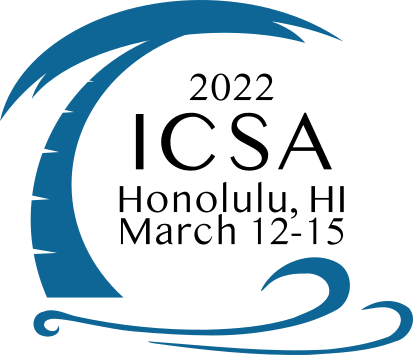Accepted papers
Empirical Assessment of Generating Adversarial Configurations for Software Product Lines
Paul Temple (PReCISE – University of Namur, Belgium), Gilles Perrouin (PReCISE – University of Namur, Belgium), Mathieu Acher (University of Rennes / Inria, France), Battista Biggio (University of Cagliari, Italy), Jean-Marc Jézéquel (University of Rennes, France), Fabio Roli (University of Cagliari, Italy)
Android Code Smells: From Introduction to Refactoring
Sarra Habchi (University of Luxembourg, Luxembourg), Naouel Moha (École de Technologie Supérieure, Canada), Romain Rouvoy (University of Lille / Inria / IUF, France)
Three Decades of Software Reference Architectures: A Systematic Mapping Study
Lina Garcés (Institute of Mathematics and Computing – UNIFEI, Brazil), Silverio Martínez-Fernández (Universitat Politècnica de Catalunya – BarcelonaTech, Spain), Lucas Oliveira (Federal Institute of São Paulo, Brazil), Pedro Valle (University of São Paulo, Brazil), Claudia Ayala (Universitat Politècnica de Catalunya – BarcelonaTech, Spain), Xavier Franch (Universitat Politècnica de Catalunya – BarcelonaTech, Spain), Elisa Yumi Nakagawa (University of São Paulo, Brazil)
Architecture Information Communication in Two OSS Projects: the Why, Who, When, and What
Tingting Bi (Wuhan University, China), Wei Ding (Wuhan University, China), Peng Liang (Wuhan University, China), Antony Tang (Swinburne University of Technology, Australia)
Design, Monitoring, and Testing of Microservices Systems: The Practitioners’ Perspective
Muhammad Waseem (Wuhan University, China), Peng Liang (Wuhan University, China), Mojtaba Shahin (Monash University, Australia), Amieto Di Salle (University of L’Aquila, Italy), Gastón Márquez (Universidad Técnica Federico Santa María, Chile)
Call for Contributions
ICSA 2022 has a partnership with Empirical Software Engineering (EMSE), IEEE Software, and Journal of Systems and Software (JSS) to incorporate journal-first papers into its program. Authors of journal-first papers accepted by EMSE, IEEE Software or JSS are invited to submit their work to be presented at ICSA 2022. This will allow authors of journal-first papers to present their work to the community.
Scope
We solicit submissions of accepted papers that meet the following criteria:
- The paper was accepted to EMSE, IEEE Software, or JSS no earlier than November 1, 2020 and no later than November 8, 2021
- The paper is related to the software architecture topics that are in the scope of the conference
- The paper has not been presented at, and is not under consideration for, journal-first programs of other conferences
Submissions
Authors of manuscripts that meet the above criteria are invited to submit a proposal directly in the EasyChair submission system consisting of (1) paper title, (2) authors, (3) abstract, (4) a pointer to the original journal paper (DOI) or pre-print, and (5) an acknowledgment that the paper meets the above-mentioned criteria.
Evaluation
Authors will be invited to present their paper at ICSA 2022 after checking that the paper meets the above criteria. Because the papers have been already reviewed and accepted by the journal, they will not be reviewed again for technical content.
Our plan is to include in the journal first program as many papers as possible; only in case an exceptionally high number of proposals is received, not all submissions might be selected. If needed, presentation proposals will be prioritized according to fit the conference theme and structure of sessions.
Important Dates
Proposal: December 8th, 2021
Notification: January 14th, 2021
Camera-ready: January 27th, 2022
Notes: All deadlines are 23:59h AoE (anywhere on Earth)
Presentation
As journal first presenter, you will have all the benefits of the conference presentation such as reaching a wider audience, interactions and discussion with peers, and feedback by peers on your work.
At least one author of each presentation accepted for the journal-first program must register and attend the conference to present the paper. The journal-first manuscripts are published through the journals and will not be part of the ICSA 2022 proceedings. The journal-first papers will be listed in the conference program and companion proceedings and ICSA 2022 participants will have access to the paper abstracts and a pointer to the journal publication outside the conference proceedings.
Organization
Aldeida Aleti (Monash University, Australia)
Grace A. Lewis (Carnegie Mellon Software Engineering Institute, USA)
